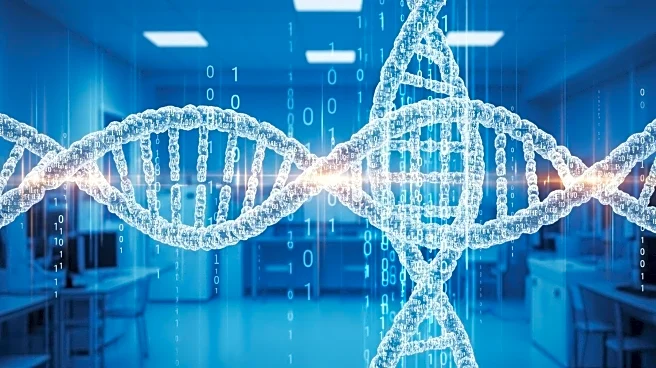What is the story about?
What's Happening?
The biotech industry is experiencing a significant shift, with over 60% of job roles expected to require coding and data skills by 2035. This trend is driven by the need to integrate biological knowledge with coding capabilities to solve complex scientific problems. High-demand coding jobs in biotech include roles such as bioinformatics programmer, computational biologist, data scientist, biostatistical programmer, software engineer, and AI/ML engineer. These positions focus on handling big data sets, building databases, and developing algorithms to advance drug discovery and genetic research. Employers are seeking candidates with strong coding fundamentals, an understanding of biology, hands-on project experience, and a problem-solving mindset.
Why It's Important?
The growing demand for coding skills in biotech reflects the industry's evolution towards data-driven approaches in research and development. This shift is crucial for accelerating drug discovery, improving patient outcomes, and enhancing the efficiency of clinical trials. As coding becomes integral to biotech innovation, professionals with these skills will be at the forefront of scientific advancements. The industry offers lucrative career opportunities for those who can bridge the gap between biology and technology, making it essential for job seekers to develop coding expertise to remain competitive.
What's Next?
Emerging trends in biotech, such as AI-driven drug discovery, single-cell and multi-omics data analysis, and digital twins of cells and patients, will further increase the demand for coding skills. As the industry continues to innovate, professionals who embrace this shift and develop coding capabilities will find themselves in high-paying roles. Employers are likely to prioritize candidates who demonstrate adaptability and a willingness to learn new technologies, ensuring they can contribute to the industry's rapid growth.
Beyond the Headlines
The integration of coding skills in biotech not only enhances scientific research but also raises ethical and regulatory considerations. As AI and machine learning models become more prevalent, ensuring data privacy and compliance with regulatory standards will be critical. Additionally, the reliance on coding in biotech may lead to a cultural shift, where interdisciplinary collaboration between biologists and technologists becomes the norm, fostering innovation and driving the industry forward.
















